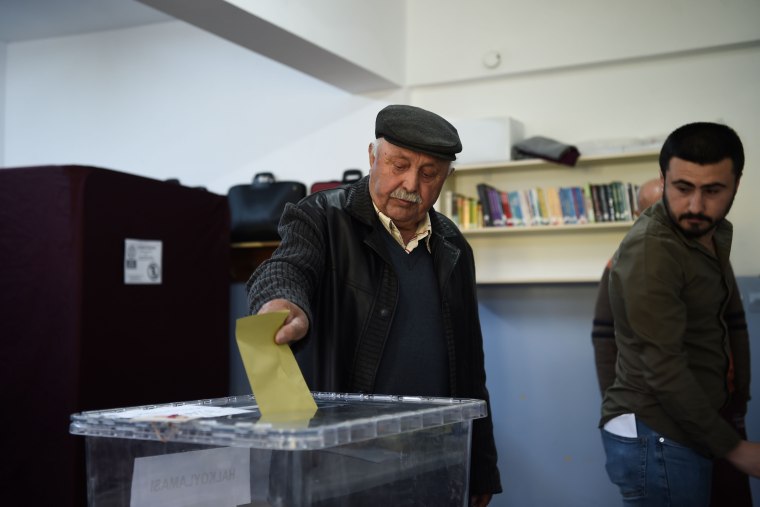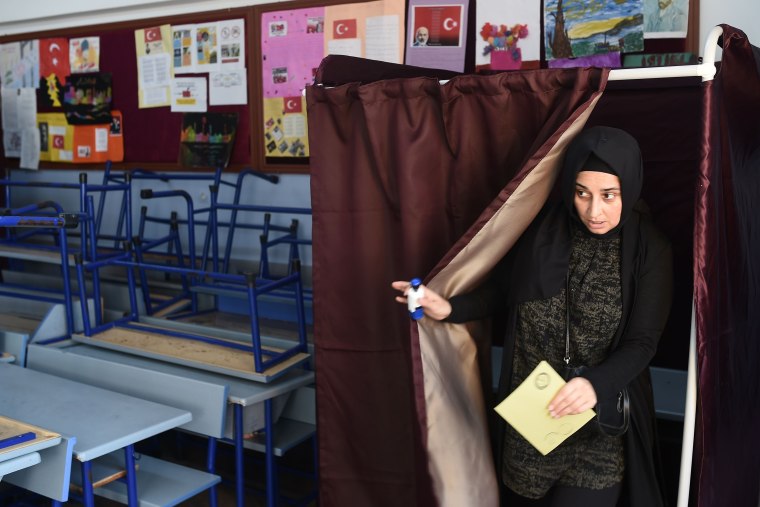Turks began voting Sunday in a hotly contested referendum that could place sweeping new powers in the hands of President Tayyip Erdogan and herald the most radical change to the country's political system in its modern history.
Opinion polls have given a narrow lead for a "Yes" vote, which would replace Turkey's parliamentary democracy with an all-powerful presidency and may see Erdogan in office until at least 2029.
The outcome will also shape Turkey's strained relations with the European Union. The NATO member state has curbed the flow of migrants - mainly refugees from wars in Syria and Iraq - into the bloc but Erdogan says he may review the deal after the vote.
Some 55 million people are eligible to vote at 167,140 polling stations across the nation which will close at 5 p.m. local time (9 a.m. ET). Turkish voters living abroad have already cast their ballots.
"A one-man system is being established, so I said 'No'. I said 'No' for a strong parliament," said Hasan Celik, 29, after voting in the southeast's largest city, Diyarbakir.
The referendum has bitterly divided the nation. Erdogan and his supporters say the changes are needed to amend the current constitution, written by generals following a 1980 military coup, confront the security and political challenges Turkey faces, and avoid the fragile coalition governments of the past.
Opponents say it is a step toward greater authoritarianism in a country where around 40,000 people have been arrested and 120,000 sacked or suspended from their jobs in a crackdown following a failed coup last July, drawing criticism from Turkey's Western allies and rights groups.
Relations between Turkey and Europe hit a low during the referendum campaign when EU countries, including Germany and the Netherlands, barred Turkish ministers from holding rallies in support of the changes. Erdogan called the moves "Nazi acts" and said Turkey could reconsider ties with the European Union after many years of seeking EU membership.

"Up until I voted I was undecided but the recent terror events wore our people down. Hence I said 'Yes', for a powerful Turkey," said 47-year-old tradesman Yigit Polat in the city of Batman, also in the southeast.
On the eve of the vote, Erdogan held four separate rallies in Istanbul, urging supporters to turn out in large numbers.
"April 16 will be a turning point for Turkey's political history... Every vote you cast tomorrow will be a cornerstone of our revival," he told a crowd of flag-waving supporters.
